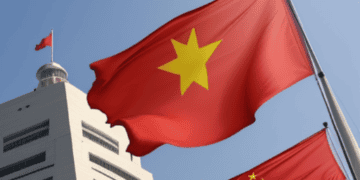China has recently expressed strong opposition to the United States regarding its potential trade discussions with Taiwan. Zhao Lijian, a spokesperson for China’s foreign ministry, cautioned the U.S. against official interactions with Taiwan, emphasizing China’s view of Taiwan as part of its territory. Beijing has shown increased assertiveness towards Taiwan, including military exercises in the region.
The U.S. has been showing more support for Taiwan, including arms sales, high-level visits, and a pledge to donate COVID-19 vaccines. U.S. Secretary of State Antony Blinken indicated that trade talks with Taiwan might soon begin, reiterating the U.S. commitment to Taiwan’s self-defense capabilities. However, the U.S. Trade Representative’s office clarified that there are no specific meetings scheduled yet but acknowledged the importance of strengthening the U.S.-Taiwan trade relationship.
Taiwan’s representative office in Washington expressed eagerness for discussions with the U.S. Trade Representative. Bonnie Glaser, a Taiwan expert at the German Marshall Fund of the U.S., suggested that while the Biden administration might resume Trade Investment Framework Talks (TIFA) with Taiwan, which were halted during Obama’s presidency, a decision on a full-fledged bilateral trade agreement may not have been reached yet.
China’s concerns extend beyond the U.S.-Taiwan relationship, as it fears such agreements might inspire other countries to engage in similar trade negotiations with Taiwan, potentially challenging China’s stance on the One China policy.
Stay updated with supply chain news at The Supply Chain Report. Learn more about international trade at ADAMftd.com with free tools.
#USChinaRelations #TaiwanUSTrade #OneChinaPolicy #GeopoliticalTensions #TaiwanTradeTalks #USForeignPolicy #TaiwanDefense #USChinaConflict #GlobalTrade #IndoPacificDynamics
















